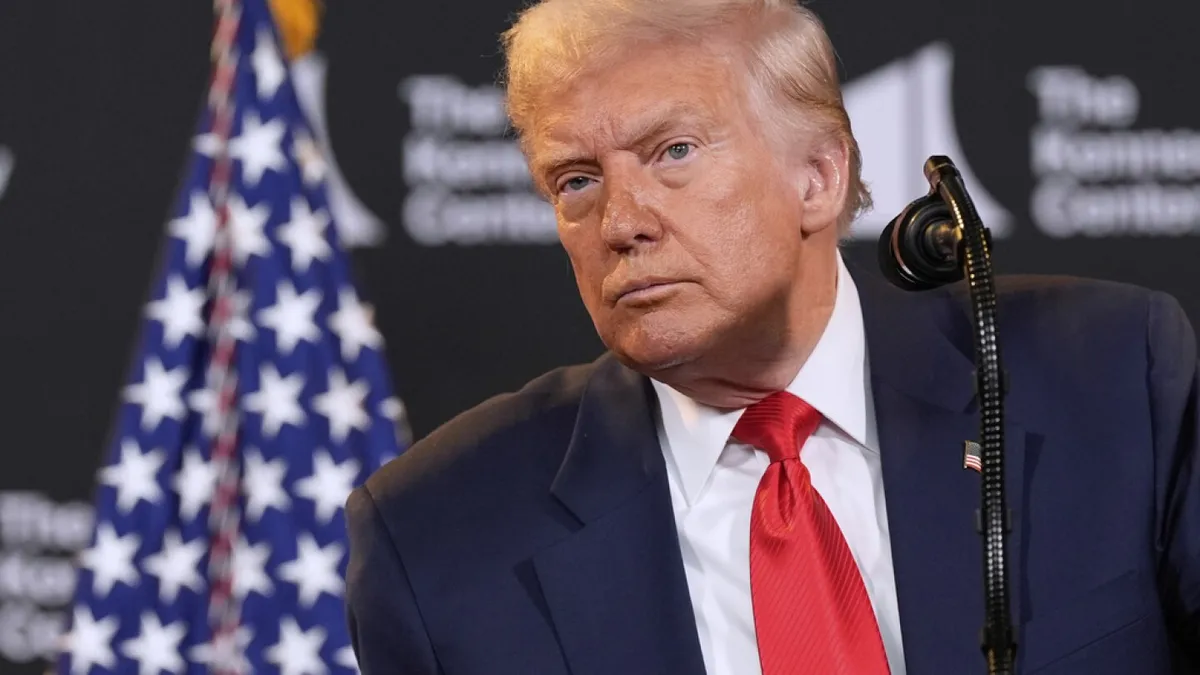
Rep. Cherrish Pryor, a prominent Democrat from Indiana, issued a stark warning on Wednesday regarding the ongoing redistricting battle in Texas. She stated that the repercussions of this conflict could extend beyond the Lone Star State, indicating that “while Texas is on the frontlines of this fight, Indiana may be next in line.” This statement reflects the growing concern among Democrats about the potential for redistricting efforts to reshape political landscapes across several states.
Former President Donald Trump has been actively pressuring Republican-led states, including Indiana, to redraw Congressional boundaries. Recently, he dispatched Vice President JD Vance to Indiana to advocate for the formation of a new federal caucus aimed at facilitating these changes. In response, Indiana Democrat Rep. Ed DeLaney criticized Vance’s visit, labeling it as “insulting and embarrassing.” He expressed disbelief that a Vice President would come to Indiana to effectively “shoplift two districts.”
DeLaney revealed that he has encountered drafts of potential redistricting maps for Indiana, which he described as “floating around.” He noted a palpable hesitancy among his Republican colleagues about these proposals. “There’s always the risk,” DeLaney cautioned, “that redistricting could backfire for the party advocating for it.” He urged his colleagues to consider the implications of these changes, reminding them that they have previously won their districts quite easily.
Meanwhile, in Texas, Rep. Jon Rosenthal, a Democrat from Houston, shared insights into the ongoing situation regarding Texas Democrats who have temporarily relocated to Chicago. He described the decision on when to return to Texas as a “complicated and emotional discussion.” As the special session approaches its end, Rosenthal acknowledged that returning home is definitely one of the options on the table.
During a Wednesday news conference held at the Dr. Martin Luther King, Jr. memorial in Chicago, Rosenthal and fellow Democrats from Texas and Indiana articulated their goals for the walkout. They emphasized that their primary success would be in raising awareness about the redistricting fight in Texas, rather than solely blocking the passage of the redrawn maps. “They may still pass these maps,” said Rep. Gene Wu of Texas, “but we’re going to do everything we can to awaken America.”
In a separate incident highlighting tensions in the nation’s capital, a man was arrested for allegedly throwing a sandwich at a federal law enforcement official amid a significant increase in law enforcement presence ordered by the White House. Sean Charles Dunn, 37, confronted a group of U.S. Customs and Border Protection agents, pointing a finger at one agent and shouting derogatory remarks. The situation escalated when he hurled a sub-style sandwich at the agent, leading to his arrest on federal assault charges.
This incident coincided with Trump’s initiative to bolster law enforcement in the city, which he claims is facing an emergency level of crime. However, city leaders argue that statistics indicate violent crime has reached a 30-year low. Trump’s approach has raised concerns among advocates who question the effectiveness of merely increasing police presence without addressing the root causes of crime.
In a significant diplomatic move, President Trump is scheduled to meet Russian President Vladimir Putin at an American military base. This meeting is intended to avoid public protests and ensure a secure environment for discussions. Defense expert Benjamin Jensen noted that this setting allows Trump to showcase American military strength while facilitating a productive dialogue with Putin.
In other news, U.S. Treasury Secretary Scott Bessent has called for limitations on congressional stock trading, echoing concerns about perceived conflicts of interest among lawmakers. Although insider trading by Congress members is illegal under the STOCK Act of 2012, Bessent argued that enforcement has been lacking, undermining public trust in the legislative process.
Trump’s administration has raised questions about its plans to address homelessness in Washington, D.C. Following Trump’s announcement of a federal takeover of policing, local officials are grappling with how to relocate homeless individuals. Press secretary Karoline Leavitt stated that local police would enforce existing laws regarding homeless encampments, offering individuals alternatives such as shelters and mental health services. However, many advocates express concern that this approach fails to tackle the underlying issues of homelessness.
District officials announced plans to increase shelter space in response to Trump’s directive. As part of his crackdown on crime, Trump emphasized the need for a comprehensive crime bill targeting D.C. specifically. His intentions, however, have been met with skepticism, particularly regarding their effectiveness in addressing the root causes of homelessness and crime in the nation’s capital.